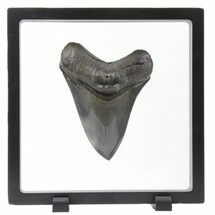4" Proterozoic Stromatolite (Collenia) End-Cut - Minnesota
This is a 4" stromatolite (Collenia undosa) section (end-cut) from the Biwabik Iron Formation in Minnesota. The red colors are a result of hematite and most of the stromatolite columns are translucent. Because of this, the slab has been cut thin for backlighting, which can be seen in one of the photos above. One side of the slab has been lightly coated to bring out the stromatolite's detail.
It comes with an acrylic display stand.
It comes with an acrylic display stand.
About Stromatolites
Stromatolites are fascinating, ancient rock formations created by the activity of cyanobacteria and other microorganisms. These layered, mound-like structures represent some of the earliest evidence of life on Earth, dating back over 3.5 billion years. Often found in shallow, warm waters, stromatolites form as layers of sediment and minerals are trapped and bound by microbial mats, gradually building up over time into unique, textured shapes.
Visually, stromatolites can range from smooth, rounded forms to intricate, banded structures, with colors that span earthy reds, browns, greens, and grays. Each layer captures a record of environmental conditions at the time of its formation, making stromatolites an invaluable source of information for scientists studying Earth’s early history and the origins of life.
Today, fossilized stromatolites are highly prized by collectors, both for their scientific significance and their natural beauty. Some living stromatolites can still be found in a few rare locations around the world, such as Shark Bay in Australia and certain alkaline lakes.
Stromatolites are fascinating, ancient rock formations created by the activity of cyanobacteria and other microorganisms. These layered, mound-like structures represent some of the earliest evidence of life on Earth, dating back over 3.5 billion years. Often found in shallow, warm waters, stromatolites form as layers of sediment and minerals are trapped and bound by microbial mats, gradually building up over time into unique, textured shapes.
Visually, stromatolites can range from smooth, rounded forms to intricate, banded structures, with colors that span earthy reds, browns, greens, and grays. Each layer captures a record of environmental conditions at the time of its formation, making stromatolites an invaluable source of information for scientists studying Earth’s early history and the origins of life.
Today, fossilized stromatolites are highly prized by collectors, both for their scientific significance and their natural beauty. Some living stromatolites can still be found in a few rare locations around the world, such as Shark Bay in Australia and certain alkaline lakes.
$115
SPECIES
Collenia undosa
LOCATION
Mesabi Iron Range, Minnesota
FORMATION
Biwabik Iron Formation
SIZE
4 x 3.4", up to .2" thick
CATEGORY
ITEM
#299963
We guarantee the authenticity of all of our specimens.
 Reviews
Reviews












